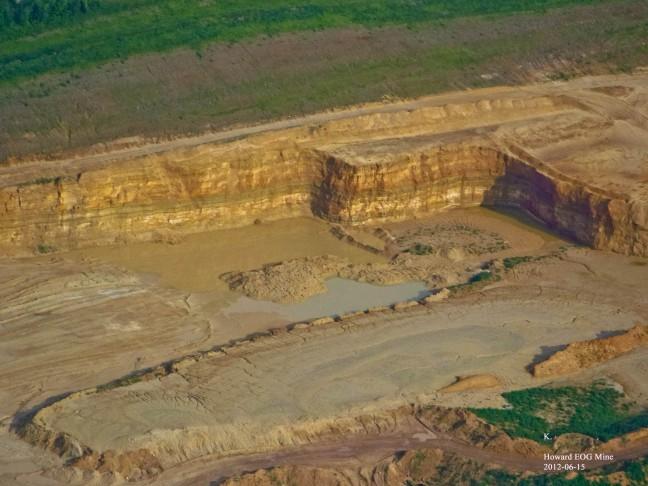In early October, a University of Wisconsin professor released a report touting the economic benefits of mining in the state of Wisconsin by looking at a hypothetical mine in Oneida County.
Juli Plant Grainger professor of economics Noah Williams released the report right before the midterm elections when Oneida County was set to vote on a non-binding referendum allowing “the lease of county lands … for the purposes of metallic mineral exploration, prospecting, bulk sampling and mining.”
Williams said he was prompted to begin the project and focus on Oneida County specifically, after being “given a gift,” and asked to weigh in on the topic by the Oneida County Economic Development Corporation.
The underlying research model for this report was the IMPLAN model, Williams said. This model is an economic impact assessment software: For impact analysis, IMPLAN identifies expenditures based on a particular aggregation of the spending data given. It uses these factors, along with a set of multipliers, to calculate direct, indirect and induced economic impacts.
“The model is standard for these types of studies,” Williams said. “The research was based on the whole suite of federal data. I looked at some of the main economic indicators and at the mining sector in neighboring states — particularly Minnesota and Michigan.”
Most of the numbers from the report came directly from the model, Williams said. His inputs were initial employment and capital expenditure. The mine in question for his model was estimated to have an initial workforce of 350 people and capital expenditure of $250 million.
According to his research, the initial salary of those 350 jobs would be $72,568 — 85 percent higher than the average pay in Oneida County.
The report also claims the mine, in total, would create 700 jobs, lead to $44 million in additional labor income and $243 million in output each year. The activity would additionally generate $6.8 million in state and local taxes per year.
But Williams said potential environmental impacts are an effect to be taken under consideration.
“[Environmental impacts] are an important component in the overall decision [on the referendum], but this research was focused purely on economic impact,” Williams said.
But he’s unaware if the state had ever spent money on cleaning up after old metallic mines, and said that cleanup costs would take away from the economic benefits of mining in the county.
Because of a lack of local data, he wasn’t entirely aware of what an initial employment market would look like for Oneida County, Williams said. But he claimed his model “scales,” meaning per-worker data can be easily re-calculated by simply scaling the model.
“Something that I wasn’t aware of before getting into this study is how that the mining industry is actually a very high paying industry,” Williams said. “I was surprised when I looked at the numbers for comparable mines in neighboring states. However, that does have to be balanced with other concerns.”
Those other concerns are close to Ald. Zach Wood, District 8. He serves as a representative on the Madison Committee on the Environment, who collectively evaluate environmental policy and its impact.
Wood said an understanding of Wisconsin’s mining history is imperative in understanding the legislation surrounding it. A big step Wisconsin took was the “Prove it First” law.
Enacted in 1997, it requires a sulfide mining applicant to show there is a mine in the U.S. or Canada that has operated for 10 years and a mine that has been closed for 10 years without causing environmental pollution. Passed with a 91-6 margin in the Assembly and a 29-3 margin in the Senate, it had overwhelming bipartisan support.
This law essentially created a moratorium in which no companies were able to prove they met this requirement.
A supporter of the law was Gov. Scott Walker, Wood said. Walker, a former State Assemblyman, had voted to pass the law when it was introduced. But after becoming governor, he signed into law a repeal of “Prove it First.”
Wood said he thought the repeal was “a horrible mistake for the state of Wisconsin,” and that there were clear negative impacts of mining, both economically and environmentally.
He cited an event regarding a Trempealeau County sand mine, where in June, material spilled during a rescue operation resulted in water tests showing lead concentrations of more than 10 times allowable levels, and aluminum levels measured at more than 1,000 times the limit.
Additionally, the Trempealeau River turned bright orange for days after, as material from the spill made its way through.
These tests, conducted by the Wisconsin Department of Natural Resources, cost both government time and money, Wood said.
While Williams praised the possible economic benefits of mining, Wood said those benefits could be the result of other sectors suffering.
“Beyond the amount of money needed to be spent on cleanup … the Three Lakes area, along with others, would be devastated if their water sources became toxic,” Wood said. “It’s not just health — their tourism and fishing industries would be decimated.”





















